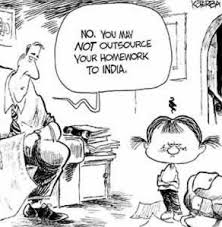How we present ourselves most certainly depends on the context in which we are responding to. From a social stand point I feel that for most people what we regard as “normal” dress for this function or that function is largely intuitive. We spend our entire lives, particularly as children, learning what to do and not to do and often our ques as adults are based upon that model. However, from a professional world standpoint the rules change drastically and are laden with a good deal more expectation.
I do feel from a professional standpoint that appearances can make or break someone. Ultimately it does come down to one’s personal skills on the job and what they can contribute. A nice suit is not the end all, be all; they can still be horrible at their job. But clothing and posture and language can all play massive parts in getting that job in the first place and getting ahead further along. Coming into a work place looking like last week’s laundry basket found under a bed will leave just as much of an impression as anything you have to say in that meeting. We’ve all heard that we shouldn’t judge by appearances, but whether we like it or not, whether we are even conscious of it or not, the judgement is there in the first 30 seconds or less; this goes back to childhood skills of watching and judging and absorbing the assumptions of those around us. Some things are just too deeply rooted into our culture to be easily rid of.
As far as I am concerned personally, I do not fuss overmuch about normal everyday wear, so making that extra effort with something that does matter, like an interview, is a bit nerve wracking. But there is a certain sense of satisfaction/ease to be had knowing that even if you screw something up you will look decent doing it. Do I think it is unfair that people can be judged and discounted by something other than their actual credibility? Yes, it is not very fair. But at the same time I understand the inherent logic behind it. If one can not take the time to look nice and be willing to go that extra step or two to make a presentation to someone else, one of two things has occurred: 1. They don’t actually care about the thing. In which case, why are they bothering to apply and why should you bother to hire. Or 2. They are careless, disregarding or lazy when it comes to their appearance, something that can be likely to translate into their work ethic. Dressing nicely usually does not take much and it is, in the end, really a display of initiative and positive-ness. The social world can be flexible, the professional one is not.






